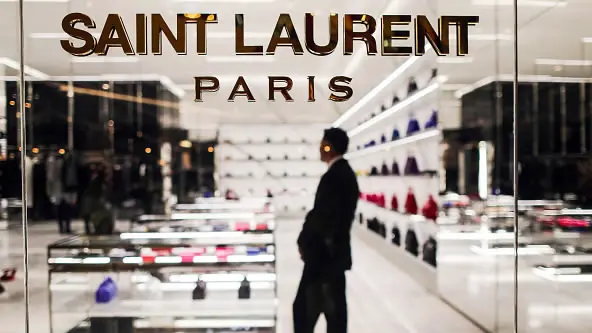World famous French fashion house Saint Laurent has launched an online store in China, according to media reports.
This
is a major step for Saint Laurent to expand its Chinese market under
current China's luxury market, which is up to the world’s biggest
contributor to the luxury market.
The brand is
teaming up with online fashion retailer Farfetch to sell high-end goods
via the Internet in China, Saint Laurent Chief Executive Francesca
Bellettini said.
The brand will sell merchandise on a
new online platform recently announced by Farfetch in a joint venture
with JD.com, China's second-biggest e-commerce company. Farfetch's
partnership with JD.com helped ease concerns about knockoffs, Saint
Laurent said.
(Saint Laurent in HK /Reuters Photo)
The announcement marks a cautious foray into China's freewheeling Internet market by one of the most elite brands in fashion.
"Protecting
the brand from counterfeiting is fundamental for Saint Laurent,"
Bellettini said, adding that the agreement with Farfetch would
"guarantee to our clients secured purchases in addition to a very
efficient service."
According to a current report,
Chinese consumers account for 30% of global luxury spending, and most of
them prefer shopping at home due to China tax requirement. That means
selling to the Chinese consumer in China has become key to the luxury
industry's growth.
She believes Saint Laurent's
sales to Chinese consumers has surged in recent years despite a slowdown
in the global luxury market. Kering Co. owns Saint Laurent, Gucci and
other brands. Kering last week reported that sales rose "sharply"
across Asia, "particularly in mainland China."
Screen shoot ofSaint Laurent online shop page /Saint Laurent Photo
"There
is this population of millennial Chinese, very well educated, in
particular Chinese university students, that are incredibly literate
with the brand," she said.
Saint Laurent is pledging
same-day delivery in Beijing, Shanghai and Hong Kong. Starting in
October, the brand aims to offer delivery within 90 minutes in these
cities.
Luxury firms have had a tumultuous
relationship with Chinese e-commerce companies, particularly Alibaba.
Kering sued Alibaba in 2015 in federal court in New York, claiming the
firm was conspiring with Chinese manufacturers to produce and sell
counterfeit versions of Kering brands.
 简体中文
简体中文





